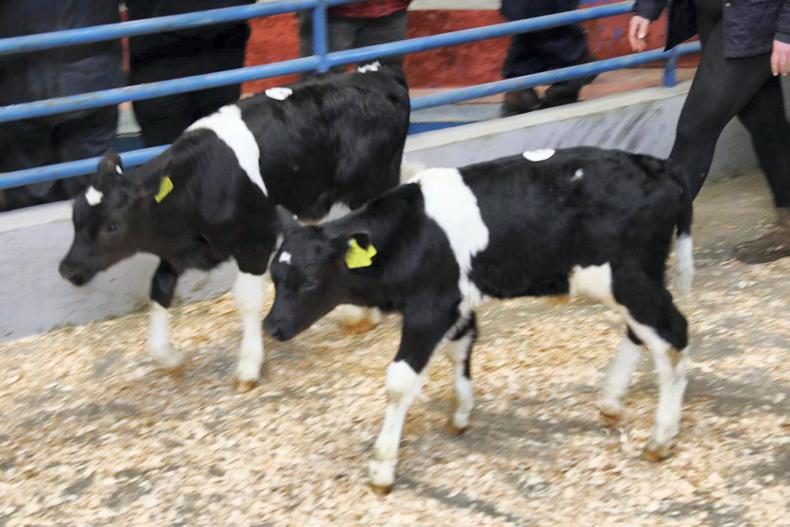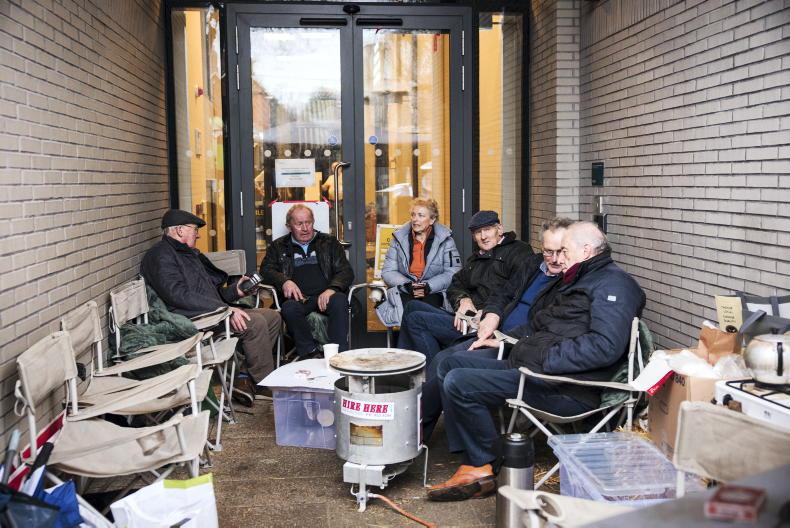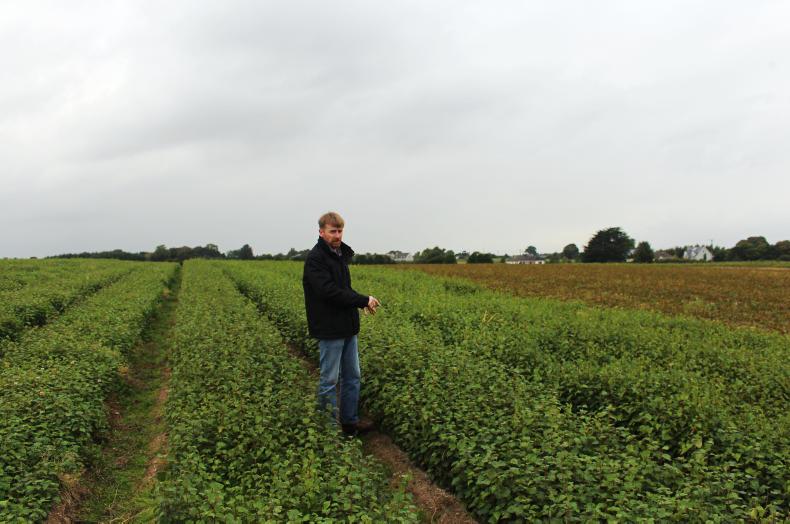Risk assessment on a farm involves good health and safety management. The key dangers need to be identified and a risk assessment document is the minimum legal requirement on all farms. Farming is an activity with multiple risk factors. Safe work practices and good farm business management go hand in hand.
The level of farm accidents is not decreasing. It has been proven that a farmers attitude to safety only changes after serious injury, or with regard to financial risk, only after suffering a loss due to an investment.
Main causes of farm deaths from 2011 to 2020
There was a total of 210 farm deaths from 2011 to 2020. The agricultural sector has a far higher fatality rate than any other major economic sector (18 per 100,000 compared to construction which is less than two per 100,000)
Over the period 2011-2020 the highest fatalities were due to tractors and farm vehicles (43%), followed by livestock (19%). Deaths of children on farms comprised 10%, with deaths of older farmers (greater than age 65) comprising 45%. Similar farm accidents occur each year so farmers’ attitude and attention to risks and safety is vital.
Government policy promotes farm safety
In the Finance Act 2020, an enhanced capital allowance regime was introduced for investment in farm safety equipment for farmers. This allows the expenditure incurred to be written off over two years as against the normal eight years. The eligible equipment include chemical storage cabinets and anti-backing gates, and adaptive equipment to assist farmers with disabilities. The proposed scheme is subject to a ministerial commencement order, which is expected in the coming weeks.
Farmers’ attitudes/perception to risk
Good planning is the only answer to help manage multiple risk factors on farms. Whether it be production risk (such as poor weather, disease etc), market risk (such as reduced milk price, low beef margins), human risk (such as health issues, stress, employee issues), or financial risk (such as cashflow shortage, overdraft or merchant credit restrictions), good management is key.
Firstly, farmers need to recognise the risk, control the exposure to the risk and ultimately endeavour to control the impact of the risk. Risk is personal to the individual farmer, not every farmer will be the same.
Financial risk (such as investing in shares, funds or property)
Farmers considering an off-farm investment should always avail of professional advice. Generally the bigger the investment opportunity, the bigger the risk. For example shares are a highly volatile commodity as the share price will go up and down. As deposit interest rates are currently at an all-time low farmers may be interested in shares or funds as an alternative investment to holding cash deposits.
Joe, a dairy farmer, has €150,000 in a bank deposit account earning little or no interest, and is wondering what to invest in as an alternative. Joe invested in bank shares many years ago and that investment cost him a lot of money. He would like some help to assess the risks.
Joe needs to get professional advice from a professional adviser or accountant to ensure he makes the right choice. If he leaves the funds in a deposit account he may end up paying negative interest in the not-too-distant future. Negative interest rates are already a feature charged by banks on large corporate deposits. Currently banks do not charge negative interest rates on personal deposits. But if this happens this could erode Joe’s cash. If a negative interest rate of 0.70% was charged, this would cost Joe €1,050 after one year, based on his €150,000 deposit.
Joe will need professional advice if investing in shares or investment funds. He needs to be aware of the risks he is willing to take with his money and the potential returns.
The risk rating (indicates how much risk an investor takes, levels one to seven) applicable to his choice of investment is important. Any investment with a low level of risk will generally produce low returns but also a low chance of losing money.
Investments with high risks will have the potential to produce high returns but also high losses. Joe needs to consider the length of time he wishes to tie up his money, short or long term. He needs to be aware of all fees, charges and taxes applicable to his choice of investment. Joe will need to be fully informed before risking his money.
Farmer perception of risk in farm succession
Farm succession and the risk of successor martial breakdown is of concern to many farmers. The risk is that the successor could divorce and the future effect of this on the farm, if it had to be sold or split up. A pre-nuptial agreement may be a solution, although these agreements have no basis in law in Ireland, as per Citizens Information. They are not strictly binding and a judge does not have to adhere to these agreements in cases of martial breakdown.
They can, however, serve as guides for the courts in judicial separation and divorce cases, as they outline what were the parties’ intentions at the outset. These agreements need to be in writing with each party availing of independent legal advice before signing. This will be covered in more detail in the coming weeks.
A good assessment of risk is a key requirement for all farmers.
Read more
Money Mentor: what you need to know about Bank of Ireland branch closures
Money Mentor: pensions and farm succession planning
Risk assessment on a farm involves good health and safety management. The key dangers need to be identified and a risk assessment document is the minimum legal requirement on all farms. Farming is an activity with multiple risk factors. Safe work practices and good farm business management go hand in hand.
The level of farm accidents is not decreasing. It has been proven that a farmers attitude to safety only changes after serious injury, or with regard to financial risk, only after suffering a loss due to an investment.
Main causes of farm deaths from 2011 to 2020
There was a total of 210 farm deaths from 2011 to 2020. The agricultural sector has a far higher fatality rate than any other major economic sector (18 per 100,000 compared to construction which is less than two per 100,000)
Over the period 2011-2020 the highest fatalities were due to tractors and farm vehicles (43%), followed by livestock (19%). Deaths of children on farms comprised 10%, with deaths of older farmers (greater than age 65) comprising 45%. Similar farm accidents occur each year so farmers’ attitude and attention to risks and safety is vital.
Government policy promotes farm safety
In the Finance Act 2020, an enhanced capital allowance regime was introduced for investment in farm safety equipment for farmers. This allows the expenditure incurred to be written off over two years as against the normal eight years. The eligible equipment include chemical storage cabinets and anti-backing gates, and adaptive equipment to assist farmers with disabilities. The proposed scheme is subject to a ministerial commencement order, which is expected in the coming weeks.
Farmers’ attitudes/perception to risk
Good planning is the only answer to help manage multiple risk factors on farms. Whether it be production risk (such as poor weather, disease etc), market risk (such as reduced milk price, low beef margins), human risk (such as health issues, stress, employee issues), or financial risk (such as cashflow shortage, overdraft or merchant credit restrictions), good management is key.
Firstly, farmers need to recognise the risk, control the exposure to the risk and ultimately endeavour to control the impact of the risk. Risk is personal to the individual farmer, not every farmer will be the same.
Financial risk (such as investing in shares, funds or property)
Farmers considering an off-farm investment should always avail of professional advice. Generally the bigger the investment opportunity, the bigger the risk. For example shares are a highly volatile commodity as the share price will go up and down. As deposit interest rates are currently at an all-time low farmers may be interested in shares or funds as an alternative investment to holding cash deposits.
Joe, a dairy farmer, has €150,000 in a bank deposit account earning little or no interest, and is wondering what to invest in as an alternative. Joe invested in bank shares many years ago and that investment cost him a lot of money. He would like some help to assess the risks.
Joe needs to get professional advice from a professional adviser or accountant to ensure he makes the right choice. If he leaves the funds in a deposit account he may end up paying negative interest in the not-too-distant future. Negative interest rates are already a feature charged by banks on large corporate deposits. Currently banks do not charge negative interest rates on personal deposits. But if this happens this could erode Joe’s cash. If a negative interest rate of 0.70% was charged, this would cost Joe €1,050 after one year, based on his €150,000 deposit.
Joe will need professional advice if investing in shares or investment funds. He needs to be aware of the risks he is willing to take with his money and the potential returns.
The risk rating (indicates how much risk an investor takes, levels one to seven) applicable to his choice of investment is important. Any investment with a low level of risk will generally produce low returns but also a low chance of losing money.
Investments with high risks will have the potential to produce high returns but also high losses. Joe needs to consider the length of time he wishes to tie up his money, short or long term. He needs to be aware of all fees, charges and taxes applicable to his choice of investment. Joe will need to be fully informed before risking his money.
Farmer perception of risk in farm succession
Farm succession and the risk of successor martial breakdown is of concern to many farmers. The risk is that the successor could divorce and the future effect of this on the farm, if it had to be sold or split up. A pre-nuptial agreement may be a solution, although these agreements have no basis in law in Ireland, as per Citizens Information. They are not strictly binding and a judge does not have to adhere to these agreements in cases of martial breakdown.
They can, however, serve as guides for the courts in judicial separation and divorce cases, as they outline what were the parties’ intentions at the outset. These agreements need to be in writing with each party availing of independent legal advice before signing. This will be covered in more detail in the coming weeks.
A good assessment of risk is a key requirement for all farmers.
Read more
Money Mentor: what you need to know about Bank of Ireland branch closures
Money Mentor: pensions and farm succession planning










SHARING OPTIONS